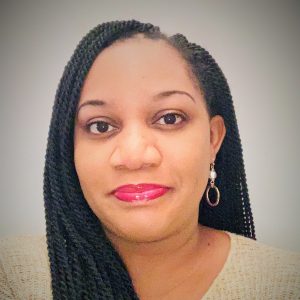A Milestone for Civil Rights: Celebrating 45 Years of IDEA
By Kanika Littleton
In the United States, over 7 million children and young adults receive special education programs and services through the Individualized Education Program (IEP). These students are entitled to a Free Appropriate Public Education (FAPE) as outlined in the Individuals with Disabilities Education Act (IDEA). IDEA encompasses the rights of students with disabilities to have access to the general education curriculum and to the greatest extent possible, be educated with their typically developing peers.
As we celebrate the 45th anniversary of IDEA, we must first look to the past to understand how and why this groundbreaking law came to be. At its core, IDEA is a civil rights law. It is part of a larger movement to improve equity within the institutions which engage the citizens of our nation.
Before 1975, public schools were not required to educate children with disabilities. Many students with significant disabilities were placed in institutions or separate schools, essentially segregating them from their typically developing peers. In fact, many states had laws against educating students with mental and physical disabilities.
As with many calls for equity, this movement started with a group of determined parents and advocates who organized, marched and appealed to local, state and federal leaders to draft legislation which would change the trajectory of the lives of children and youth with disabilities.
Two landmark decisions in 1972, “Mills vs. Board of Education” and “Pennsylvania Association for Retarded Children (PARC) vs. Commonwealth of Pennsylvania”, set the groundwork for what would become the “Education for All Handicapped Children Act” or Public Law 94-142, enacted in 1975. This law guaranteed a Free Appropriate Public Education for students with disabilities and is the first version of what is now known as IDEA. The law would go on to be reauthorized four times. Each reauthorization served to strengthen the law, including providing supports and services to children age birth to 3, additional disability categories, discipline protections, transition services, increased accountability, and high expectations for all students with disabilities.
Since the drafting and subsequent passage of this law began with the efforts of parent advocates, it is fitting that parental involvement has been a cornerstone since its inception. The contributions parents make to greater educational and post-secondary outcomes for their children cannot be overstated. IDEA recognizes parents as equal partners and includes parent training and information dissemination as key components of the law.
First introduced in 1977, Parent Centers have assisted parents to positively impact their children’s education and post-secondary outcomes. Today, there are 94 Parent Centers across the nation, including 29 Community Parent Resource Centers (CPRCs) and 65 Parent Training and Information Centers (PTIs).
These programs provide information, education, and support to help parents understand their rights under IDEA, participate on the IEP team and be involved in decision-making processes relevant to their children’s education. Parent Center staff typically include parents of students with disabilities.
It is through this lens, as a PTI Director and parent, that I reflect on the impact of IDEA. At age three, my son was diagnosed with a developmental disability. Thus, began a journey filled with ongoing learning opportunities. In the beginning, I was unfamiliar with IDEA, including the supports and services provided through the Individualized Family Service Plan (IFSP) and IEP. I was told that my son would likely remain non-verbal and need to attend a center-based program. However, through the provision of individualized instruction, access to the general education curriculum, meaningful inclusion and transition support, my son is a contributing member of his community. Today, as an active member of my now teenaged son’s education, I’ve gained first-hand knowledge, which allows me to inform other parents on every aspect of early intervention, special education, and transition to adulthood.
My story is one of many. IDEA has positively influenced the lives of countless children, young adults, and their families, by providing the necessary education, supports and services to become fully included members of society. This is important now more than ever as the country faces the most significant health crisis in over 100 years.
Undeniably, COVID-19 has negatively affected the ability to educate students. Students with disabilities may encounter even greater challenges as they attempt to navigate learning from a distance and the loss of programs, supports and services which cannot be provided through a virtual environment. Moreover, inequities in our educational system have exacerbated the loss of learning for some students. These challenges are unprecedented and require immediate attention. Educators and families working together is vital to moving forward. Nevertheless, as more needs are identified, perhaps it is time to reauthorize our federal special education law so that as a nation, we are prepared to continue supporting all learners, under any circumstance.
IDEA recognizes and celebrates the diversity of learners and calls on educators, service providers, and families to ensure that no student with a disability is denied access to FAPE. It is appropriate to celebrate the accomplishments realized by this groundbreaking law and look forward to strengthening its impact in the coming years. Our students deserve nothing less.
Kanika Littleton is the Director of the Michigan Alliance for Families and the parent of a child with disabilities.
Blog articles provide insights on the activities of schools, programs, grantees, and other education stakeholders to promote continuing discussion of educational innovation and reform. Articles do not endorse any educational product, service, curriculum or pedagogy.


